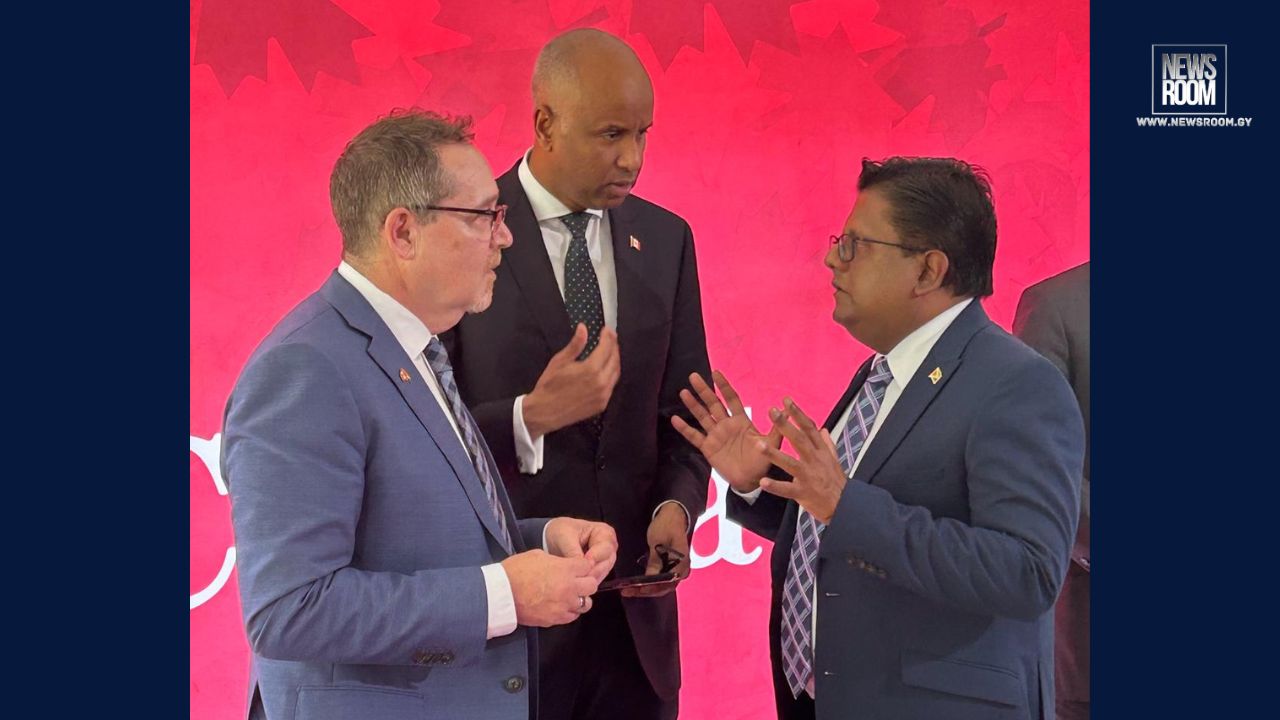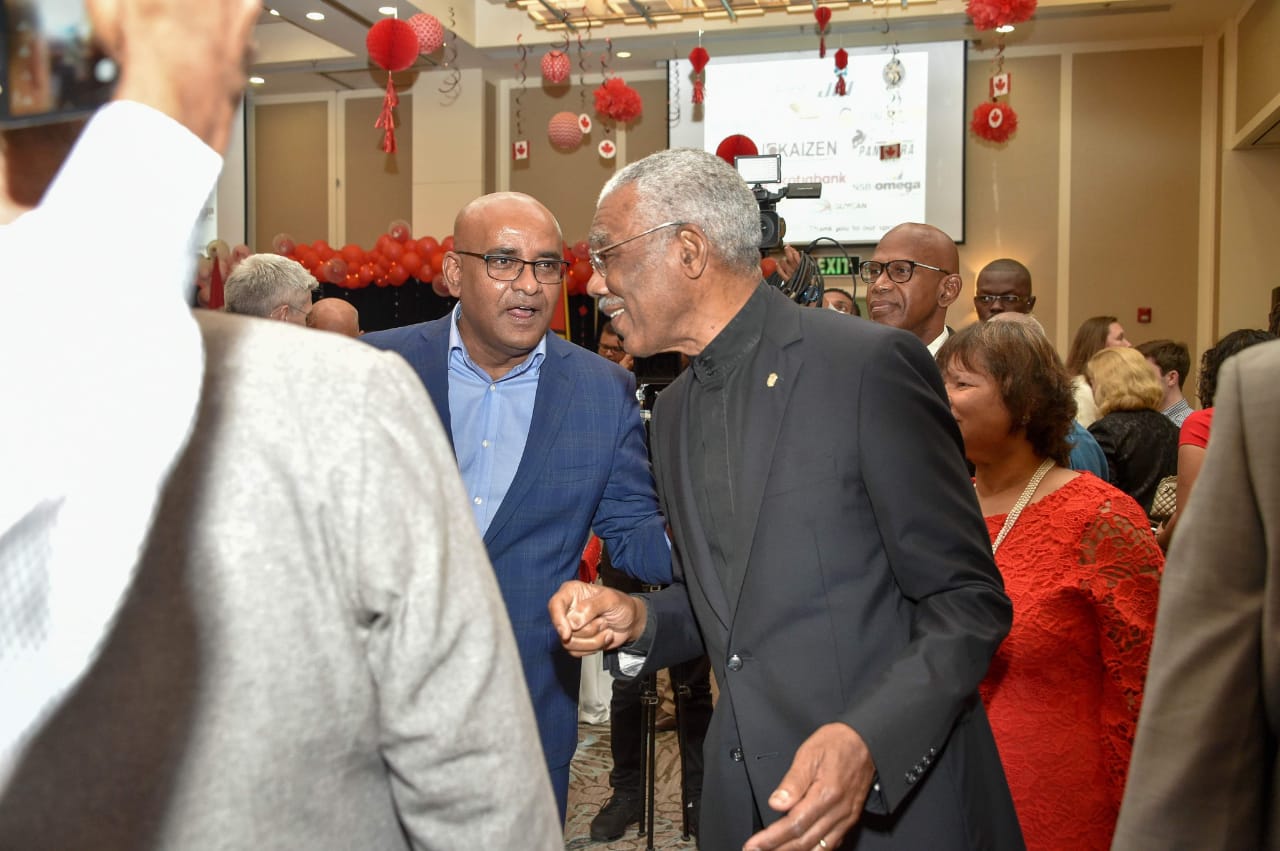
Canada’s Minister of International Development Ahmed Hussen on Sunday reaffirmed his country’s support for Guyana’s territorial integrity and sovereignty and highlighted that Canada looks forward to a “peaceful” and “diplomatic” settlement of the Guyana/Venezuela border controversy.
“We in Canada and the Canadian Government (are) concerned with the ongoing tensions between Guyana and Venezuela. We stand with the government and we call for the respect of international law.
“Please rest assured that Canada supports Guyana’s territorial integrity. And, as in any dispute, we look forward to a peaceful and diplomatic settlement to this matter,” Minister Hussen said on Sunday.
Minister Hussen is visiting Guyana for the first time. He travelled with the country’s Assistant Deputy Minister for the Americas, Glen Linder.
And Hussen made these remarks at the signing of an agreement for a sovereign loan programme between Guyana and Canada on Sunday morning.
The Government of Canada made similar statements last year when Guyana’s President Dr. Irfaan Ali met his Venezuelan counterpart, Nicolas Maduro in St. Vincent and the Grenadines. That meeting was brokered following rising tensions between the two sides after Venezuela pursued a referendum that involved Guyana’s Essequibo region.
The border controversy between Guyana and Essequibo is decades-old. The boundary, as internationally-recognised, was settled in 1899 through an Arbitral Award. It was accepted by Venezuela and Guyana (then British Guiana) until the 1960s as Guyana approached its independence.
A political mechanism known as the 1966 Geneva Agreement was set up to resolve the controversy but after decades of talks failed, the United Nations Secretary General referred the matter to the International Court of Justice (ICJ), which is the UN’s principal judicial organ. Guyana hopes the Court will provide a final, binding judgement that reaffirms the borders and that the Essequibo region is its own.





